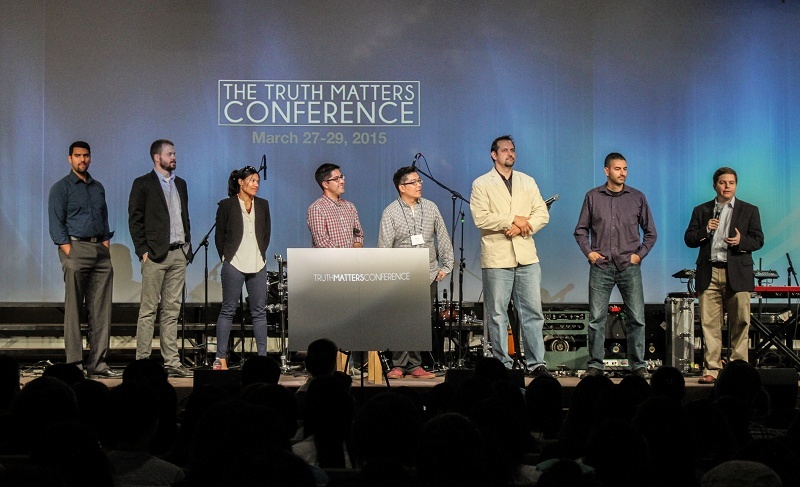

Speakers from the Ravi Zacharias International Ministries (RZIM) and Stand to Reason were featured at the recent 'Truth Matters Conference,' a conference held at Church Everyday that aimed to equip youth to defend their faith.
From March 27-29, Church Everyday in Northridge, California hosted The Truth Matters Conference featuring speakers from Ravi Zacharias International Ministries and Stand to Reason. The goal of the conference was to "to help young people think about the credibility of the Christian faith, and to train them to make a gracious defense of the Gospel of Jesus Christ," according to the conference website.
Alan Shlemon from Stand to Reason, a ministry that aims to equip Christians to defend their faith through its curriculum, broadcast, and speaking events, spoke at one of the main sessions as well as a separate breakout session to equip the young believers to live as ambassador for Christ.
"Once you have believed, you become an ambassador for Christ," he said. "God is expecting us to speak for Him in His behalf; what you do and say will affect how people view God."
In discussing the manner of being an ambassador of Christ, Shlemon noted three qualities of an effective ambassador: 1. knowledge - an accurately informed mind; 2. wisdom - an artful method; 3. character - an attractive manner.
As he talked about knowledge for the ambassador, Shlemon explained that this knowledge has two criterions: knowledge of the truth and knowledge of the error.
"We have to know our King's message. Do not let life situations create the context for the text. Follow a simple rule: Never read a Bible verse (by itself) and do not read the Bible verse without its proper context," he said. "We must know the false ideas to destroy them. We should inoculate false ideas, not isolate them. We should not ridicule or ignore ideas and throw Bible verses at such ideas."
Shlemon called for better exegetical and hermeneutical studies from believers and pleaded believers to confront different worldviews instead of isolating them as bad ideas.
Shlemon also described the wisdom of the ambassador - the ability to artfully communicate. He introduced the believers to the Columbo tactic during the breakout session. He explained that it is far better to use questions instead of statements to make points and move forward in a religious conversation.
"The question, "What do you mean by that?' helps you to gain information and the question, "How did you come to that conclusion?' helps you to reverse the burden of proof," he said. "Stop giving people free rides; people who give their opinion needs to give evidence for their belief."
"Make your message clear. Present the truth in a clear and unambiguous way. Use terms that are intelligible to the listeners," Shlemon continued. "How can I best communicate so others understand and respond in a productive way?" he asked.
Lastly, Shlemon wanted the body of believers to pursue having more attractive character. "Avoid two extremes: 1. We're so nice so we don't say anything that would offend anyone; 2. We don't care what anyone thinks so we offend everyone."
Shlemon gave practical examples for the young Christians to follow. "Use these three powerful phrases to demonstrate character in religious conversation: 1. I could be wrong; 2. I sympathize with your concern; 3. That's a good point (or reasonable objection)," he said. "Also have good character at a restaurant by following these three rules: 1. Learn the server's name and use it; 2. Leave a good tip (15%-20%); 3. Find your server and thank him or her before you leave."
Shlemon pleaded the believers to be more courteous in their speech and their actions. For final thoughts on character, he said, "Find a friend to tell you if you are being harsh, crass, or condescending; character is a self-assessment activity. The Gospel is offensive enough. Do not add any more offense to it," he warned the listeners.
Joo Heon Lee is a volunteer student writer from the University of California, Irvine.



















